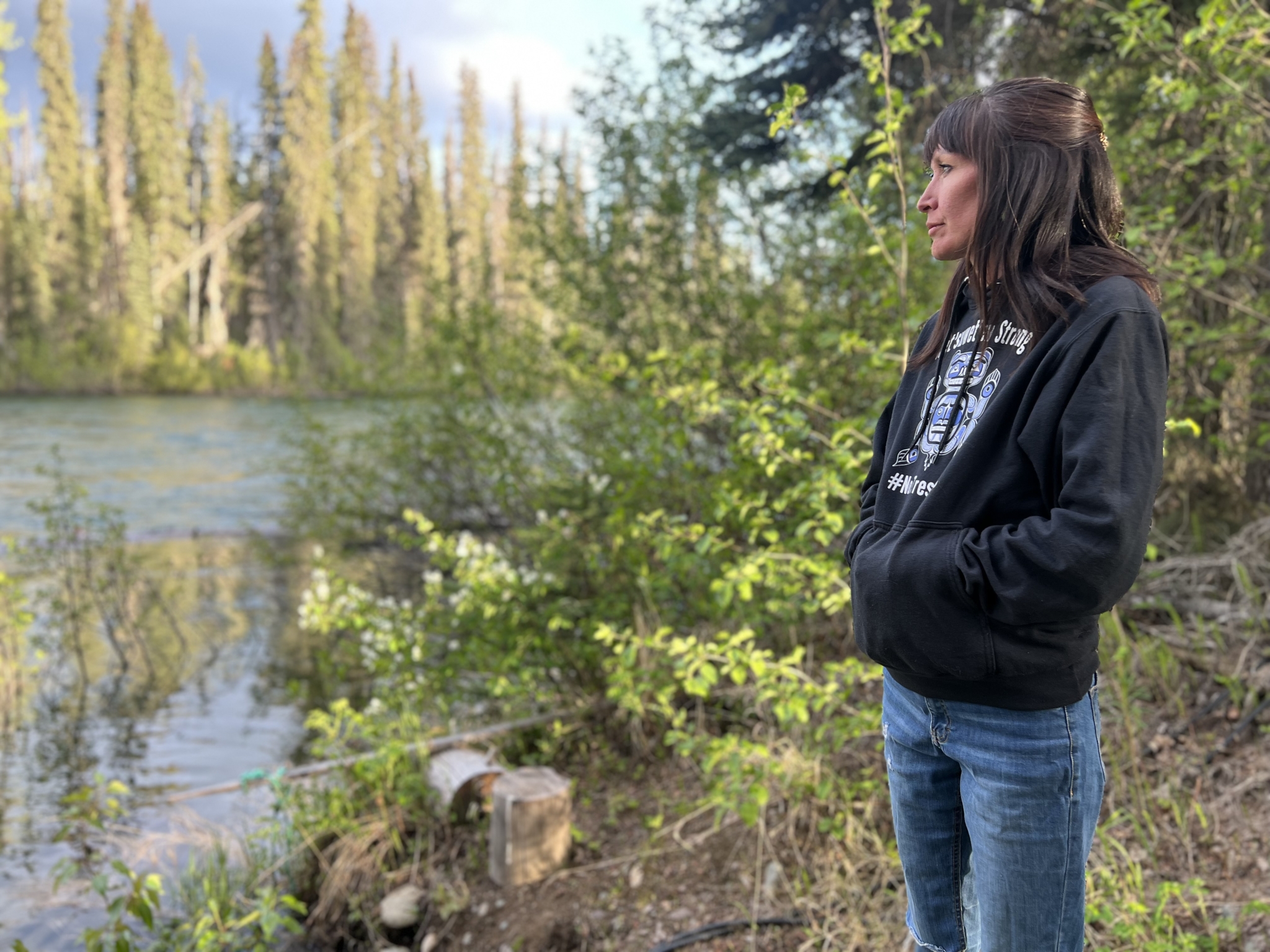The government of British Columbia must take immediate action to stop the criminalization of Wet’suwet’en and other Indigenous land defenders, starting with three defenders whose cases will return to court today.
This morning, a court in Smithers, B.C. will resume hearing arguments examining abuse-of-process complaints made by three land defenders arrested in November 2021 during a violent police raid on Wet’suwet’en territory: Sleydo’ (also known as Molly Wickham), a Wing Chief (Cas Yikh house) of the Gidimt’en Clan of the Wet’suwet’en Nation; Shaylynn Sampson, a Gitxsan woman with Wet’suwet’en family connections; and Corey “Jayohcee” Jocko, who is Kanien’kehá:ka (Mohawk) from Akwesasne.
- Background: Amnesty report tracks years-long campaign of criminalization, unlawful surveillance against Wet’suwet’en land defenders
- Related: Chief Dsta’hyl, Canada’s first-ever prisoner of conscience, completes house-arrest sentence
The three land defenders were previously found guilty of criminal contempt for breaching an injunction order that Amnesty International has deemed as unjust. The injunction prevents land defenders from being on the land near construction sites and taking actions to defend Wet’suwet’en territory against construction of the Coastal GasLink (CGL) liquefied natural gas pipeline, even if these actions are protected under the human rights to self-determination and freedom of peaceful assembly. The current hearings are examining whether the Royal Canadian Mounted Police (RCMP) used excessive force during the arrests of the land defenders, resulting in a breach of human rights. A finding of a breach could lead to the suspension of the sentences of the land defenders.
“Amnesty International remains steadfast in solidarity with the Wet’suwet’en and other Indigenous land defenders who risk their safety not only to protect their territory and rights, but to ensure a healthy environment for everyone,” said France-Isabelle Langlois, Director General of Amnistie internationale Canada francophone. “We call on Canada and British Columbia to prioritize the rights of Indigenous Nations across the country and their struggles to mitigate climate change.”
“The make-up of the B.C. government has changed, and so must the province’s approach to the rights of Indigenous land defenders peacefully protecting their ancestral territories against extractive megaprojects,” said Ketty Nivyabandi, Secretary General of Amnesty International Canada’s English-speaking section. “After years of aggressive surveillance, harassment, intimidation and criminalization against Indigenous land defenders on Wet’suwet’en territory, Canada and B.C. must put people’s rights before profits and preserve the natural environment we all share.”
Wet’suwet’en Nation featured in Write for Rights global campaign
This year, Amnesty International has included the Wet’suwet’en land defenders as part of Write for Rights – the world’s largest human rights campaign. Every year, hundreds of thousands of people across more than 200 countries write letters, sign petitions and send messages of solidarity in support of about 10 featured people or groups whose rights have been violated. With the entire global Amnesty movement rallying behind them, Wet’suwet’en land defenders and their allies will shine an even brighter light on their efforts to protect their territory, their way of life, and our collective right to a healthy environment. Join us in demanding that Canada and British Columbia stop criminalizing Wet’suwet’en and other Indigenous land defenders now!
“It speaks volumes that the world’s largest human rights organization has launched a global campaign to support Indigenous land and water defenders from the Wet’suwet’en Nation,” said Ana Piquer, Americas director at Amnesty International. “It is outrageous that, rather than protecting the rights of these defenders, the authorities of British Columbia have decided to prosecute them. Canada is on the worrying long list of countries in the Americas where land defenders are still at risk for their essential work.”
Header photo: Sleydo’, a Wing Chief (Cas Yikh house) of the Gidimt’en Clan of the Wet’suwet’en Nation, is one of three Indigenous land defenders whose abuse-of-process claims are set to be heard in a British Columbia court this week. (Alli McCracken/Amnesty International)





















